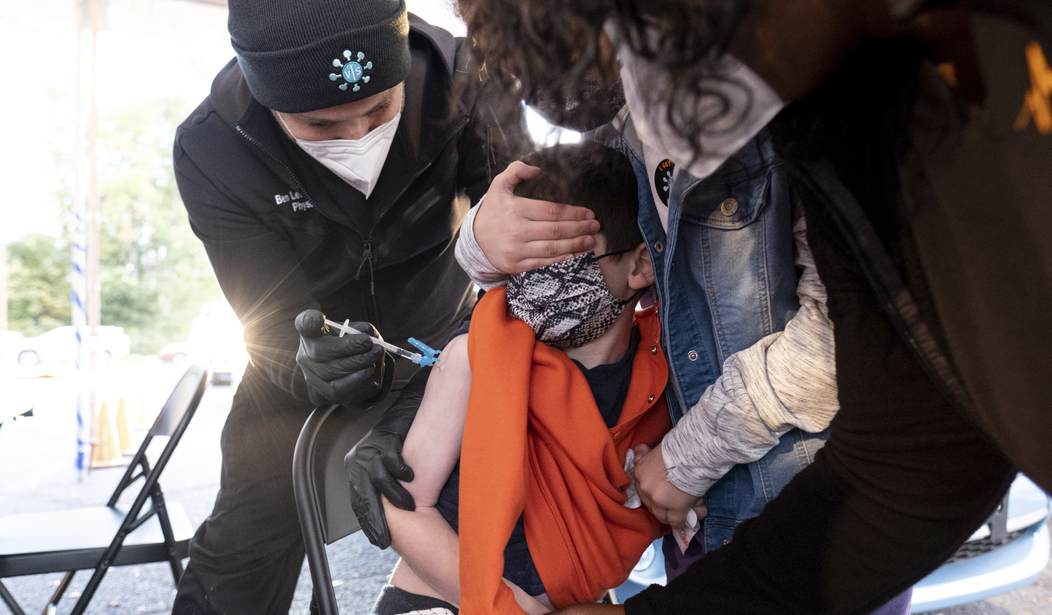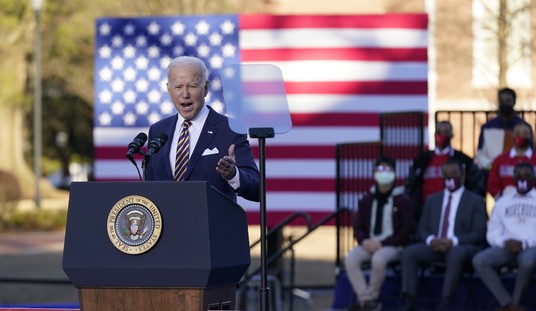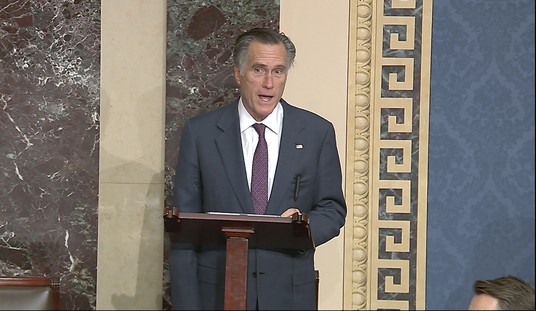Sounds like a big deal. Yet, if you’re like me, this is the first you’re hearing about it even though it’s been in development for two years.
Was the Army keeping it under wraps, either for natsec reasons or because they didn’t want to get people’s hopes up before they had data? Or is this vaccine still enough of a longshot to pan out that there just isn’t much buzz around it in the broader scientific community? Note that this scoop was handed to DefenseOne, not to some medical journal.
We’ve had three coronavirus epidemics in the past 20 years, the original SARS, then MERS, now COVID. Scientists have had to play catch-up with the virus each time; the long-term solution, assuming it’s feasible, is to devise a vaccine that works across all coronaviruses and will immunize people against killer germs they haven’t encountered yet. The immediate task, however, is to formulate a vaccine that works across all variants of SARS-CoV-2, the specific coronavirus that’s driving the pandemic. We’ve been playing catch-up with those variants too. What if we had a vaccine that stops all of the current strains in their tracks and would protect us against any new mutations that might arise in the wild?
The Pentagon says it might have something.
The Army lab received its first DNA sequencing of the COVID-19 virus in early 2020. Very early on, Walter Reed’s infectious diseases branch decided to focus on making a vaccine that would work against not just the existing strain but all of its potential variants as well.
Walter Reed’s Spike Ferritin Nanoparticle COVID-19 vaccine, or SpFN, completed animal trials earlier this year with positive results. Phase 1 of human trials, which tested the vaccine against Omicron and the other variants, wrapped up this month, again with positive results that are undergoing final review, Dr. Kayvon Modjarrad, director of Walter Reed’s infectious diseases branch, said in an exclusive interview with Defense One.
Unlike existing vaccines, Walter Reed’s SpFN uses a soccer ball-shaped protein with 24 faces for its vaccine, which allows scientists to attach the spikes of multiple coronavirus strains on different faces of the protein.
The mRNA vaccines from Pfizer and Moderna were designed to target the spike protein of the original Wuhan virus, a narrow rapid solution to an urgent problem. The catch was that it meant our immune systems might struggle to recognize the spike on a heavily mutated strain like Omicron. Researchers at Walter Reed played the long game, focusing instead on a vaccine that would train the immune system to recognize many different types of spikes. Last week they published their early findings: “Immunogenicity and challenge studies in mice, hamsters, and nonhuman primates following vaccination with SpFN+ALFQ showed robust antibody responses to spike protein and protection against challenge with SARS-related Coronavirus 2, Isolate USA-WA1/2020 and B.1.1.7 and B.1.351 virus variants.”
SpFN isn’t the only technique being used to try to produce a universal COVID vaccine, though. Instead of including an array of different spikes in their vaccine to generate immunity, other researchers are trying to teach the immune system to recognize more of the virus besides the spike protein. That way, if a new variant comes along with a drastically mutated spike, the vaccinated might still detect it and fend it off.
Oxford-based biotech start-up Baseimmune has developed an algorithm-based system capable of creating antigens containing all the parts of the pathogen. The technology could help researchers to develop the next generation of universal vaccines that protect against future variants that could evolve in several major diseases…
Baseimmune’s vaccine design algorithm draws on genomic, epidemiological, immunological, clinical and evolutionary data to create blueprints for antigens capable of responding to a particular pathogen in its current form as well as likely variants that may arise in the future.
Back in January 2020, the Baseimmune team fed the small amount of existing data about SARS-CoV-2 into their algorithm, which correctly predicted major variants such as Alpha and Delta that would not emerge for another year.
A major caveat to the Army vaccine is that they’re still only in phase one of human trials, which are geared towards ensuring that a vaccine doesn’t cause major side effects. Presumably we’re at least a year away from phase three trials being completed. Whether the vaccine will successfully neutralize the virus in people, especially people who already have some form of immunity, is anyone’s guess. And if it does, it’s also anyone’s guess what the public’s response will be. Will the vax-skeptical be more or less likely to be immunized with a vaccine produced by the U.S. military that promises more comprehensive immunity than the mRNA vaccines do? If you’re worried about infertility being caused by a vaccine that targets one strain of the virus, how worried will you be by one that targets several, possibly dozens?
It’d be a huge advance if it pans out, though, needless to say. And it might accelerate the effort to develop a universal coronavirus vaccine, one that protects not just against SARS-CoV-2 and its variants but anything else floating around in China’s bat caves that might eventually make the leap to humans. Some scientists have been pushing for that for years; a noteworthy champion of the idea is Anthony Fauci, who made the case for it recently in the New England Journal of Medicine. Two weeks ago, he called it the highest priority of his agency. If it can be done — and if people can be convinced to take the shot — presumably it would make coronavirus-driven pandemics impossible going forward.







Join the conversation as a VIP Member